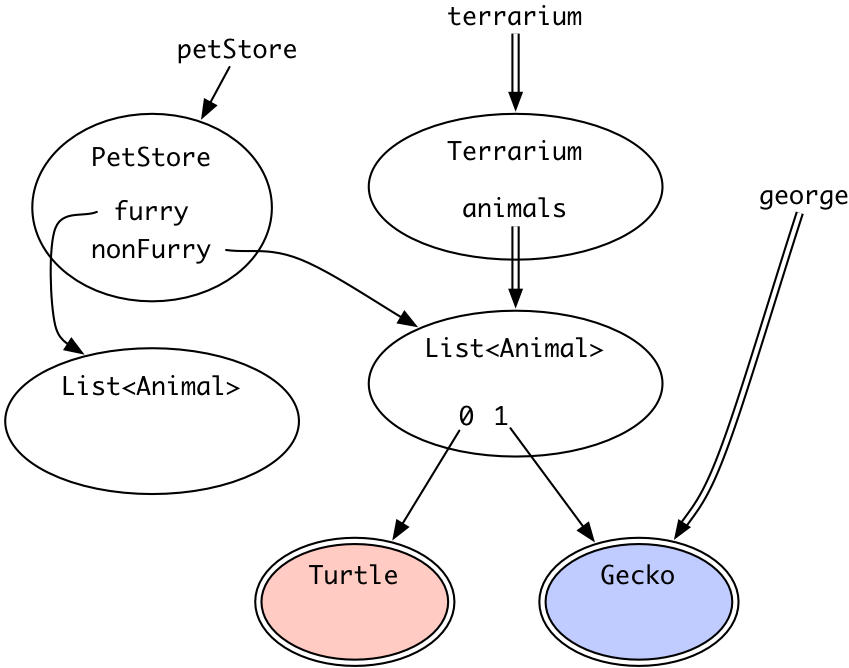Why Are Strings Immutable in Java? Safety And Security and Performance Perks
Why Are Strings Immutable in Java? Safety And Security and Performance Perks
Blog Article
What Is Unalterable Strings and Just How It Works
In the world of programming, comprehending the concept of unalterable strings is vital for developing secure and robust applications. Unalterable strings refer to strings that can not be changed after they are developed, making sure data integrity and predictability within the code.
The Essentials of Immutable Strings
Unalterable strings, as an essential idea in programming, are character series that can not be altered when they are created. This suggests that once a string is appointed a value, that value can not be altered. In languages like Python and Java, strings are unalterable things, causing different effects in terms of memory management and information integrity.
One of the essential benefits of immutable strings is that they give a feeling of safety in data manipulation. Considering that the content of an unalterable string can not be modified, it makes sure that the initial data continues to be intact, minimizing the risk of unexpected modifications throughout program execution (Why are strings immutable in Java?). This residential or commercial property also simplifies debugging processes, as designers can rely on that when a string is specified, its worth will not be accidentally altered
When a new string is developed based on an existing one, rather than customizing the original string, the brand-new worth is kept independently. On the whole, understanding the fundamentals of immutable strings is important for understanding shows principles and maximizing code effectiveness.
Advantages of Unalterable Strings
Structure upon the security and effectiveness benefits of immutable strings, their advantages prolong to improving code integrity and simplifying concurrent programs tasks. By being unalterable, strings can not be customized after development, which gets rid of the danger of unintentional modifications in the data they store. This intrinsic immutability makes sure that as soon as a string is produced, its worth continues to be consistent throughout the program's implementation, minimizing the possibilities of bugs triggered by unforeseen modifications.
Furthermore, immutable strings add to code integrity by making it easier to reason concerning the state of a program. Since strings can not be transformed, programmers can rely on that a string will always hold the very same worth, simplifying debugging and maintenance initiatives. This predictability leads to a lot more stable and reputable codebases.

Execution in Shows Languages
Within numerous programming languages, the incorporation of unalterable strings is a fundamental facet that affects how information is handled and controlled within code frameworks. The implementation of immutable strings varies across various programming languages, with each language offering its very own mechanisms to support this idea.

On the other hand, languages like C and C++ do not have integrated support for immutable strings. Programmers in these languages have to manually implement immutability by implementing rules within their code to stop direct modifications to string things.
Best Practices for Working With Unalterable Strings
When managing immutable strings in programs languages like Java and Python, internet adhering to finest techniques ensures effective and secure data adjustment. One of the crucial ideal techniques is to make use of StringBuilder or StringBuffer rather than straight controling strings, especially when managing substantial concatenation procedures. These courses supply mutable alternatives for string manipulation, aiding to avoid unneeded memory allocations and improving performance.
An additional ideal technique is to utilize string interpolation or format functions provided by the language rather than manual concatenation. This not only improves readability however additionally aids in image source avoiding common mistakes such as unintentional string alterations. Furthermore, when dealing with delicate information such as passwords or API keys, it is important to stay clear of storing them as simple message in unalterable strings. Making use of secure storage mechanisms like char ranges or specialized collections for taking care of delicate info aids alleviate safety risks connected with immutable strings.
Real-world Applications and Examples
Checking out sensible executions of unalterable strings in various markets reveals their significant influence on information integrity and system reliability. In the healthcare market, immutable strings play an important function in ensuring the safety and security and privacy of individual data. By preventing unapproved adjustments to delicate information such as medical records and prescriptions, immutable strings aid preserve conformity with stringent privacy policies like HIPAA.
Banks likewise gain from the unalterable nature of strings to improve the protection of consumer information and transaction documents. Unalterable strings aid prevent scams and unauthorized modifications to economic details, providing a durable protection against cyber dangers and ensuring the count on and confidence of customers.

Verdict
Best techniques for functioning you could try these out with unalterable strings consist of staying clear of straight alterations and using methods that return new string things. Real-world applications of immutable strings include data file encryption, caching, and string control jobs.
Unalterable strings refer to strings that can not be modified after they are developed, ensuring information integrity and predictability within the code. When a new string is created based on an existing one, rather than modifying the original string, the brand-new worth is saved separately.In languages like Java and Python, strings are unalterable by default, implying that when a string object is produced, its value can not be changed - Why are strings immutable in Java?. Ideal techniques for functioning with unalterable strings consist of staying clear of direct alterations and utilizing approaches that return new string objects. Real-world applications of unalterable strings consist of information file encryption, caching, and string control tasks
Report this page